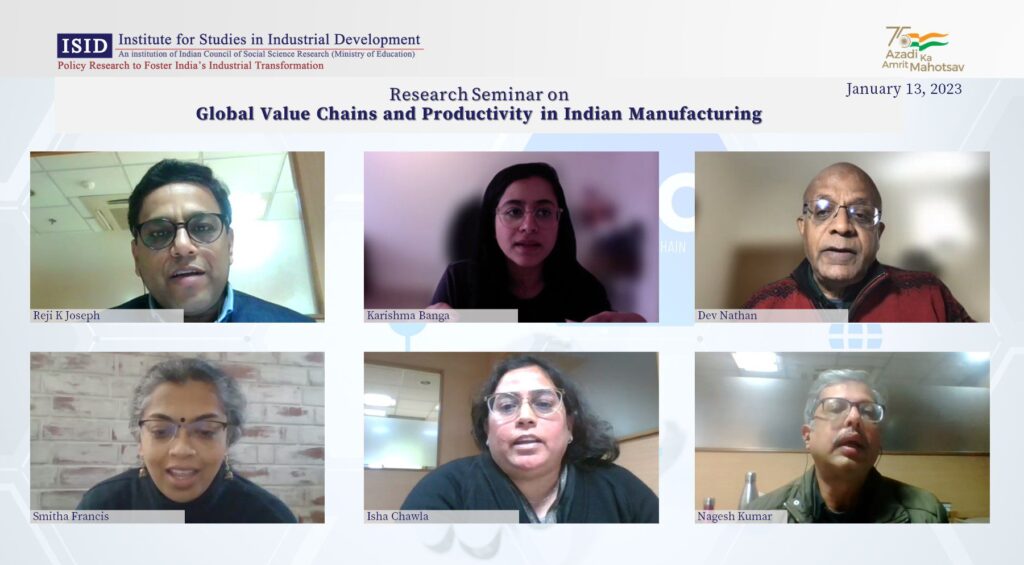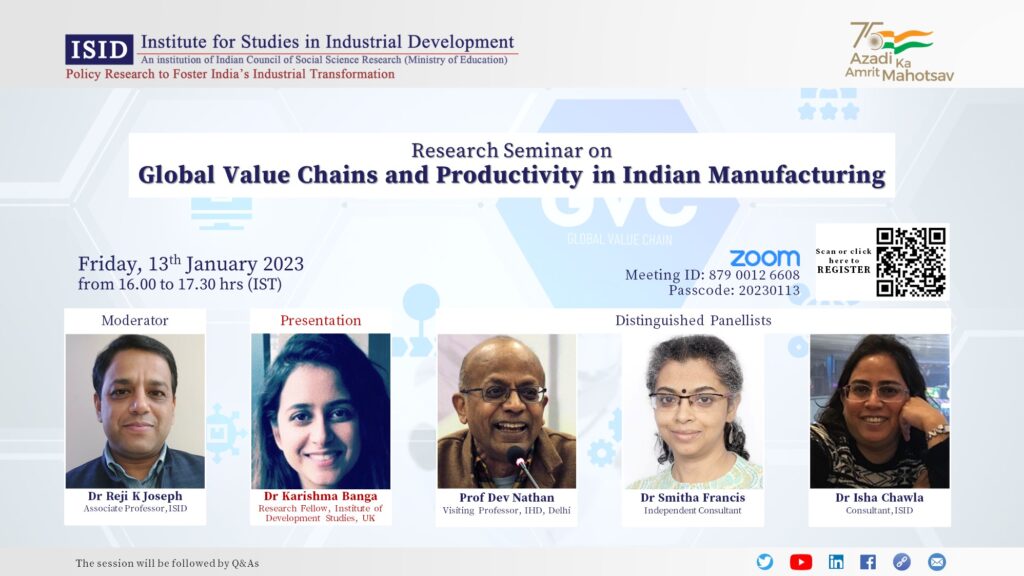
The institute organised a webinar on “Global Value Chains and Productivity in Indian Manufacturing” on January 13, 2023. The webinar was based on research findings of Dr Karishma Banga, Research Fellow, Institute of Development Studies, United Kingdom. Considering the role of global value chains (GVCs) in productivity gains in developed country firms, the study examined whether the same holds true for developing countries as well, taking the case study of India. The analysis was based on unbalanced panel of Indian manufacturing firms in the period 2000/2001–2014/2015 extracted from the Prowess data set. The results indicated positive and significant impact of linking into GVCs on firms’ Total Factor Productivity. Increasing GVC embeddedness was also found to have positive and significant impact on the firm productivity. However, the productivity gains are not homogenous. The gains are higher for the firms in relational governance chains than in other chains and also for older and more liquid GVC firms. Study emphasized on designing policies to facilitate GVC linkage and firm technological capability to foster productivity gains in developing countries. The webinar was followed by panel discussion that included Prof Dev Nathan, Visiting Professor, Institute for Human Development, New Delhi; Dr Smitha Francis, Independent Consultant; and Dr Isha Chawla, Consultant, ISID. The seminar was moderated by Dr Reji Joseph, Associate Professor, ISID.

Click here for the INVITE
Abstract: With production increasingly fragmented across borders, global value chains (GVCs) form a key feature of the world economy. A rising body of literature has documented productivity gains from linking into GVCs for developed-country firms, but studies on the same for developing countries are scant. In this paper, we empirically examine whether GVCs can increase total factor productivity (TFP) in developing countries, using an unbalanced panel of Indian manufacturing firms in the period 2000/2001–2014/2015 from the Prowess data set.
To address econometric issues of self-selection and endogeneity, we use a two-stage empirical strategy of propensity score matching and system generalized method of moments. The results indicate that linking into GVCs has a positive and significant impact on firm TFP, even after accounting for self-selection of more productive firms into GVCs. Once linked, increasing GVC embeddedness, captured through firm-level vertical specialization, also has a positive and significant impact on firm productivity. But productivity gains are not homogenous; GVC firms that link into relational governance chains, captured through the share of skilled workers and infrastructure and communication index relative to industry, have 20% higher productivity growth than firms in other chains. Older and more liquid GVC firms are also more productive. Designing policies to facilitate GVC linkages and firm technological capabilities can thus foster productivity gains in developing countries.

